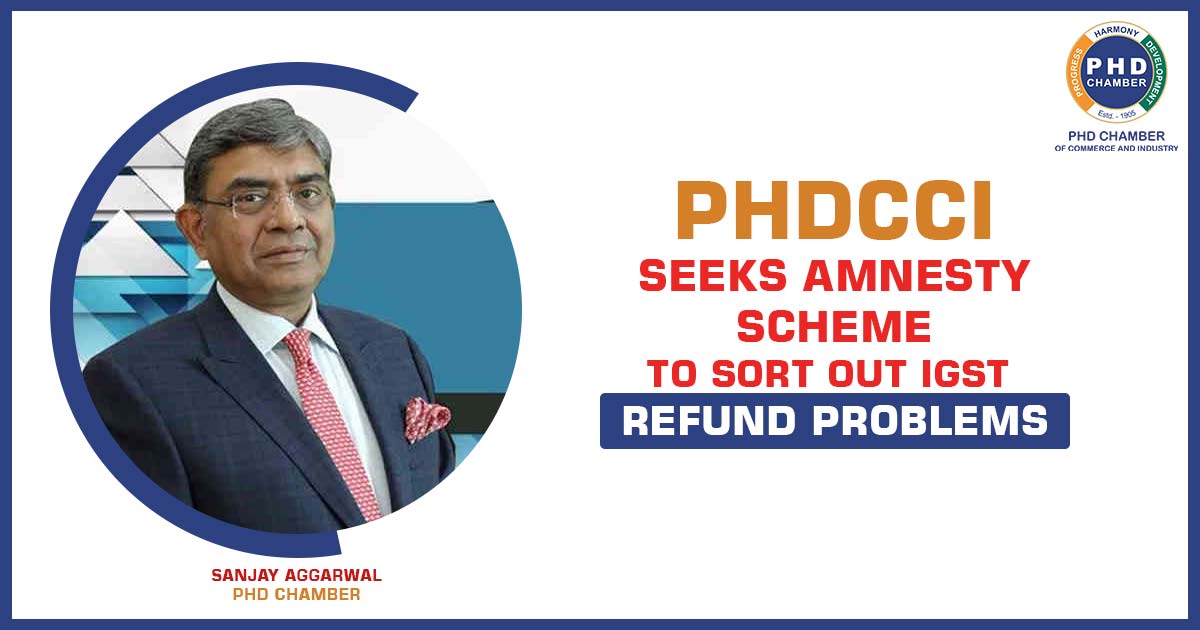
One time amnesty scheme has been expected by the exporters in order to deal with the problems caused by a provision in the Goods and Services Tax (GST) rules that expects to safeguard government revenue from traders who demanded credit under Integrated GST (IGST) through what authorities have termed ‘irrelevant’ products.
Sanjay Kumar Aggarwal, Chairman at the PHD Chamber of Commerce and Industry made a request to the Central Board of Indirect Taxes and Customs (CBIC) through a letter that the IGST refunds paid on exports under Rule 96(10) of the Central GST Rules need to be addressed.
He explained in the letter that IGST refunds under the provision for excess GST paid were claimed by the exporters. In the matter of making an IGST payment refund, it was claimed with the firm understanding that they are eligible to claim a refund.
Several notices demanding recovery were issued to several exporters indicating their ineligibility if exports were made on IGST payment, resulting in litigation, according to the letter.
It was also mentioned in the letter that the validity and legality of Rule 96(10) of the CGST Rules were questioned before different High Courts. It said that including many reasons to question the constitutional validity remain open and the matter is sub-judice before various High Courts.
Read Also: Exporters Suggest Key GST Changes in Regulations for Speedy Relief
It is impeding the ability of exporters to ‘conduct business with certainty and efficiency” and any delay in giving relief would have a “critical and continuous impact on many sectors in India”, it contended.
In a letter dated July 4, Saurabh Sanyal, CEO and Secretary General at the PHD Chamber of Commerce and Industry said that exporters are in a long-drawn legal fight and have suffered damages especially the Indian exporters given the lack of clarity and retrospective modifications in Rule 96(10).